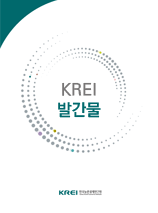
- Global Spread of Saemaul Undong for Rural Development in Developing Countries
-

-
○ As growing attentions are paid to Korea’s Saemaul Undong, also known as the New Community
Movement, around the world, an increasing number of non-Koreans take Saemaul Undong-related
training programs, and relevant institutions have been organized in developing countries, with rural
development policies designed by benchmarking Saemaul Undong.
○ In the UN General Assembly and the UN Sustainable Development Summit in 2015, the Saemaul
Undong case of Korea was proposed as a new paradigm for international development cooperation,
and accordingly, the Korean government released the Plan for Global Spread of Saemaul Undong on
May 3rd, 2016.
- The five key challenges include i) clarifying the concept of the Saemaul Undong ODA, ii)
establishing strategies customized to each recipient country, iii) improving procedures and
methods of projects, iv) improving the implementation system and efficiently allocating roles, and
v) consolidating partnerships by expanding participation of stakeholders in the development
process.
○ The Plan for Global Spread of Saemaul Undong has significance in that it presents the standards for
Saemaul Undong ODA projects, which used to lack coherence in the past. Aside from the plans for
the existing 24 key partner countries, the country-specific implementation strategies have been
established with consideration for demands for development based on Saemaul Undong. In particular,
the subcommittee has been organized under the International Development Cooperation Committee
to take charge of systematic implementation, monitoring, evaluation and coordination of Saemaul
Undong ODA projects.
○ The scale of Korea’s ODA projects has not reached the international standard level yet, but is
rapidly growing. And as the number of ODA projects related to rural development has been on the
rise, many relevant institutions, including the Korea International Cooperation Agency (KOICA), the
Ministry of Agriculture, Food and Rural Affairs (MAFRA), the Rural Development Administration
(RDA), and the provincial government of Gyeongsangbuk-do, have promoted Saemaul
Undong-related or similar projects in the form of integrated rural development, development of
customized agricultural technologies, and education and training programs for local residents.
○ The following points should be considered in applying the approaches of Saemaul Undong to the
process of rural development in developing countries.
- The concept, principles and detailed methodologies of Saemaul Undong should be abstractly
outlined and defined as the Saemaul Rural Development Approach to be applied to a variety of
today’s ODA projects.
- ODA projects should serve not as another common type of aid project, but as the ones to actualize
potential capacity of recipient countries, helping them autonomously develop subcategory projects
based on the characteristics of and demands for development in target regions.
- In order to employ the approaches of Saemaul Undong in ODA projects, the projects should be
implemented by remaining consistent with international goals of development assistance such as
SDGs and observing international regulations. -
목차
요약문
○ As growing attentions are paid to Korea’s Saemaul Undong, also known as the New Community
Movement, around the world, an increasing number of non-Koreans take Saemaul Undong-related
training programs, and relevant institutions have been organized in developing countries, with rural
development policies designed by benchmarking Saemaul Undong.
○ In the UN General Assembly and the UN Sustainable Development Summit in 2015, the Saemaul
Undong case of Korea was proposed as a new paradigm for international development cooperation,
and accordingly, the Korean government released the Plan for Global Spread of Saemaul Undong on
May 3rd, 2016.
- The five key challenges include i) clarifying the concept of the Saemaul Undong ODA, ii)
establishing strategies customized to each recipient country, iii) improving procedures and
methods of projects, iv) improving the implementation system and efficiently allocating roles, and
v) consolidating partnerships by expanding participation of stakeholders in the development
process.
○ The Plan for Global Spread of Saemaul Undong has significance in that it presents the standards for
Saemaul Undong ODA projects, which used to lack coherence in the past. Aside from the plans for
the existing 24 key partner countries, the country-specific implementation strategies have been
established with consideration for demands for development based on Saemaul Undong. In particular,
the subcommittee has been organized under the International Development Cooperation Committee
to take charge of systematic implementation, monitoring, evaluation and coordination of Saemaul
Undong ODA projects.
○ The scale of Korea’s ODA projects has not reached the international standard level yet, but is
rapidly growing. And as the number of ODA projects related to rural development has been on the
rise, many relevant institutions, including the Korea International Cooperation Agency (KOICA), the
Ministry of Agriculture, Food and Rural Affairs (MAFRA), the Rural Development Administration
(RDA), and the provincial government of Gyeongsangbuk-do, have promoted Saemaul
Undong-related or similar projects in the form of integrated rural development, development of
customized agricultural technologies, and education and training programs for local residents.
○ The following points should be considered in applying the approaches of Saemaul Undong to the
process of rural development in developing countries.
- The concept, principles and detailed methodologies of Saemaul Undong should be abstractly
outlined and defined as the Saemaul Rural Development Approach to be applied to a variety of
today’s ODA projects.
- ODA projects should serve not as another common type of aid project, but as the ones to actualize
potential capacity of recipient countries, helping them autonomously develop subcategory projects
based on the characteristics of and demands for development in target regions.
- In order to employ the approaches of Saemaul Undong in ODA projects, the projects should be
implemented by remaining consistent with international goals of development assistance such as
SDGs and observing international regulations.저자정보
저자에게 문의
구매안내
KREI의 출판물은 판매 대행사 (정부간행물판매센터)와 아래 서점에서 구입 하실 수 있습니다.
판매대행사
- (주)정부간행물판매센터http://www.gpcbooks.co.kr사이트 바로가기
- 서울특별시 중구태평로 1가 25번지
- TEL 02) 394-0337, 734-6818
- FAX 02) 394-0339
판매서점
판매서점 교보문고 http://www.kyobobook.co.kr/ 영풍문고 http://www.ypbooks.co.kr/ 알라딘 http://www.aladin.co.kr/ 활용도 정보
활용도 정보 상세정보 조회 좋아요 다운로드 스크랩 SNS공유 7660 0 43 0 0 -
- Suggestions to Promote the Hometown Love Donation System
- Gouk, Seungyong
- 2022.11.25
- KREI 이슈리포트
-
- Ten Years of Korea-U.S. FTA: focusing on agri-food trade
- Kim, Kyungphil
- 2022.06.09
- KREI 이슈리포트
-
- Impacts of Ukraine-Russia Conflict on Global Grain Prices
- Kim, Jongjin
- 2022.03.31
- KREI 이슈리포트
-
- The Impacts of the COVID-19 on the Korean Agricultural Market
- Seo, Hong-Seok
- 2020.06.05
- KREI 이슈리포트
-
- 10 Agricultural Policy Issues of Korea in 2019
- Jeong, Minkook
- 2019.01.29
- KREI 이슈리포트
-
- State of Korean and Overseas Markets for Environment-Friendly Agricultural Products and Challenges 2018
- Jeong, Hakkyun; Sung, Jaehoon; Lee, Hyeonjeong
- 2018.09.12
- KREI 이슈리포트
-
- Measures to Establish the Water-Energy-Food Nexus for Agricultural Resource Management
- Sung, Jaehoon; Cho, Wonju; Lee, Hyeonjeong
- 2018.09.05
- KREI 이슈리포트
-
- Changes in the Trade of Agricultural and Livestock Products and Implications after Seven Years from the Enforcement of the Korea-EU FTA
- Song, Woojin; Lee, Hyunkeun; Myeong, Suhwan; Yoo, Juyoung
- 2018.06.29
- KREI 이슈리포트
-
- 10 Agricultural Policy Issues of Korea in 2018
- Kim, Byoungryul
- 2018.01.22
- KREI 이슈리포트
-
- Income Changes by Type of Farm Household and Implications
- Woo, Byungjoon
- 2017.11.30
- KREI 이슈리포트
-
- 10 Agricultural Policy Issues of Korea in 2019
- Jeong, Minkook
- 2019.01.29
- KREI 이슈리포트
-
- Income Changes by Type of Farm Household and Implications
- Woo, Byungjoon
- 2017.11.30
- KREI 이슈리포트
-
- 10 Agricultural Policy Issues of Korea in 2018
- Kim, Byoungryul
- 2018.01.22
- KREI 이슈리포트
-
- Job Creation Potential for the Youth and Challenges in the Agricultural Industry
- Ma, Sangjin
- 2017.01.01
- KREI 이슈리포트
-
- Implementation Plan and Implications of International Development Cooperation Projects for Agriculture in 2017
- Heo, Jang
- 2017.04.28
- KREI 이슈리포트
-
- 2016 Production Status and Market Prospect of Eco-Friendly Agricultural Products at Home and Abroad
- Jeong, Hakkyun; Lee, Hyejin; Kim, Changgil
- 2016.11.30
- KREI 이슈리포트
-
- The Impacts of the COVID-19 on the Korean Agricultural Market
- Seo, Hong-Seok
- 2020.06.05
- KREI 이슈리포트
-
- Goals and Strategies to Reduce Greenhouse Gas Emissions in the Agriculture Sector
- Jeong, Hakkyun; Kim, Changgil
- 2015.11.03
- KREI 이슈리포트
-
- 70 Years' Achievements and New Challenges of Korean Agriculture and Rural Communities
- Song, Miryung; Moon, Hanpil; Kim, Meebok; Seong, Jooin; Lim, Jieun
- 2015.09.15
- KREI 이슈리포트
-
- Strategy for Creative Economy, and Vitality in Agriculture and Rural District
- Park, Joonki
- 2013.06.18
- KREI 이슈리포트
의견남기기


